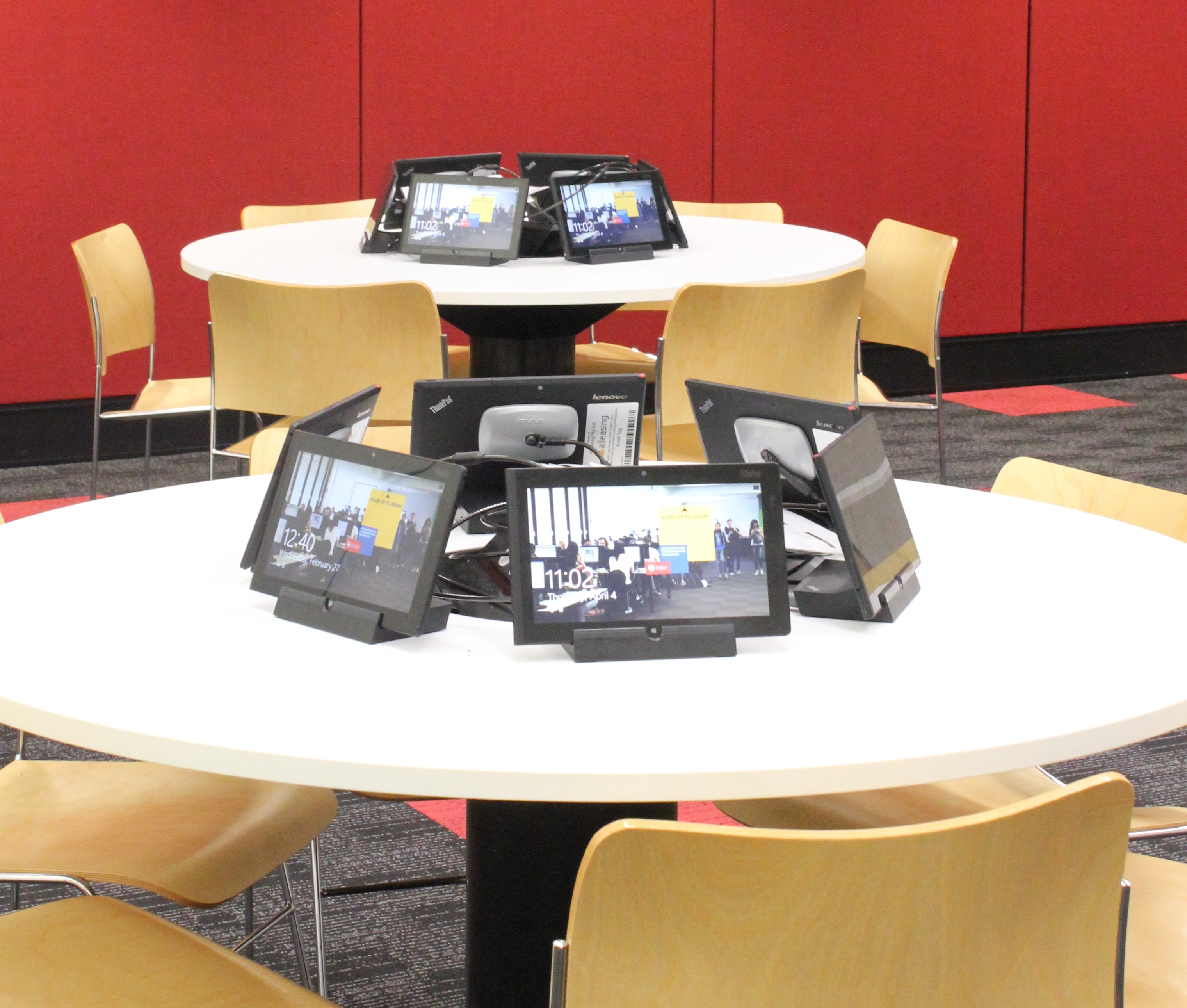Sydney Uni deploys tablets to improve in-class discussions

With the aim of using technology to support and improve in-class discussions, the University of Sydney (USYD) wanted to establish learning spaces that would integrate digital technology with face-to-face classroom interaction.

As a result, the university rolled out a pilot of 100 Windows 8-based Lenovo ThinkPad Tablet 2 devices at the start of February 2013 across two of its teaching spaces — one in the Faculty of Health Sciences at Cumberland, and another in its newly built Faculty of Law building in Camperdown.
USYD manager of next technology Nick Gilbert said the challenge was to find a solution that would enable technology to support and assist referential tutorials and learning — something that existing computer labs were unable to facilitate for its 50,000 students and 7,600 staff members.
"Computer labs are great for those disciplines where you need one-on-one computing, because software is the point of discussion for the class," he said.
"But where traditional labs don't work is in scenarios where there are classes that focus around reference materials, like a course reader, which require students to read ahead of time and then engage in discussion around the material. Often this happens in courses such as Arts, Social Science, or Law.
"In those classes, computer labs can restrict how these discussions work, because they are designed for only one person to talk at a time, and you generally can't split the class into groups. This is why we felt the answer was tablet computing."
Docking station: a key factor
However, the decision to collaborate with Lenovo and Microsoft on the project was not an automatic one. Instead, Gilbert said the university canvassed samples and trials from eight market-leading vendors in the tablet computing space, which were tested by IT staff, students, and academics.
"We took a weighted evaluation approach, considering a range of technology and user interface aspects in the decision. In the end, we felt uncomfortable with solutions from Android and Apple broadly, because we felt they didn't plug in well with our existing lab technology environment or address the specific needs that our teachers and students identified," he said.
"Also, at the time, Lenovo's tablet product was far and away the closest fit to our needs, and was able to directly connect into our existing SCCM management environment. We evaluated across a bunch of features, and a key factor was the ability to have a robust Ethernet-enabled dock/charging station with a good range of connectivity."
"None of us expect tablets to entirely replace our traditional computer labs, but they are an important part of our technology landscape now."
— Nick Gilbert, Sydney University
Since the deployment of the Lenovo tablets, Gilbert said different kinds of conversation have been taking place in the classrooms. It now encourages students to open discussions up to including online and journal content rather than having the discussions restricted to only about the assigned reading material for the class.
"It's such a novel concept, because we are so used to a disconnected classroom," Gilbert said.
"But now, students can use their online research and bring that right into the classroom. It's tapping into a generation of people who have grown up synthesising the information available on the internet. It brings the classes that much closer to a free-flowing research process than being locked into using only the paper that they have in front of them."
As more buildings are renovated at the university, Gilbert expects more tablets to be rolled out, as they are more cost effective than traditional computer lab setups and support a range of different teaching styles. The next building expected to receive tablets will be part of the Arts Faculty.
"A year later, we can safely say it was a successful pilot, and now it's an additional tool at our disposal," Gilbert said. "None of us expect tablets to entirely replace our traditional computer labs, but they are an important part of our technology landscape now."